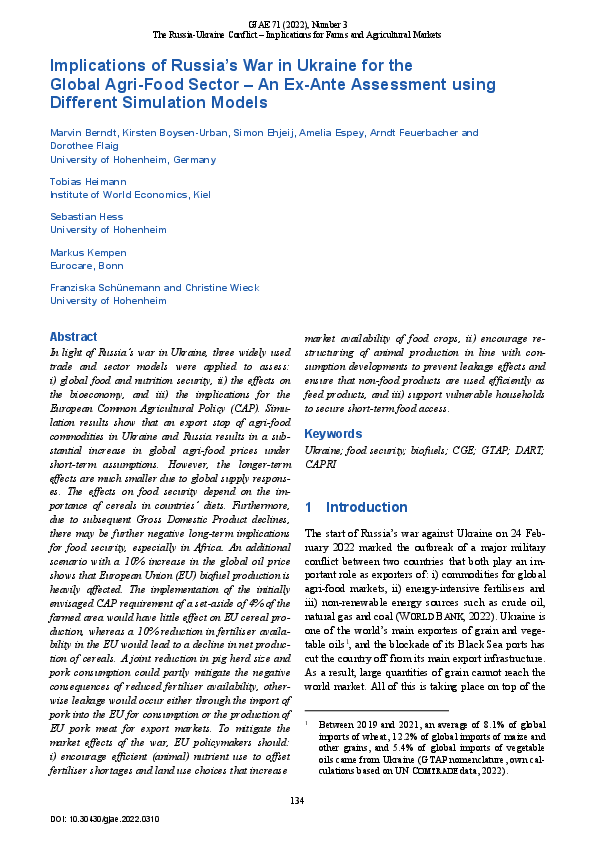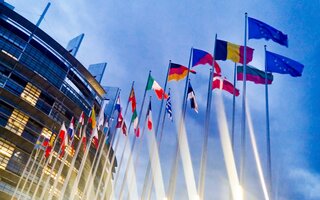Journal Article
Implications of Russia’s War in Ukraine for the Global Agri-Food Sector – An Ex-Ante Assessment using Different Simulation Models
Autoren
Erscheinungsdatum
DOI
Schlagworte
Natürliche Ressourcen
Russland
Europa
In light of Russia’s war in Ukraine, three widely used trade and sector models were applied to assess: i) global food and nutrition security, ii) the effects on the bioeconomy, and iii) the implications for the European Common Agricultural Policy (CAP). Simu?lation results show that an export stop of agri-food commodities in Ukraine and Russia results in a sub?stantial increase in global agri-food prices under short-term assumptions. However, the longer-term effects are much smaller due to global supply respons?es. The effects on food security depend on the im?portance of cereals in countries’ diets. Furthermore, due to subsequent Gross Domestic Product declines, there may be further negative long-term implications for food security, especially in Africa. An additional scenario with a 10% increase in the global oil price shows that European Union (EU) biofuel production is heavily affected. The implementation of the initially envisaged CAP requirement of a set-aside of 4% of the farmed area would have little effect on EU cereal pro?duction, whereas a 10% reduction in fertiliser availa?bility in the EU would lead to a decline in net produc?tion of cereals. A joint reduction in pig herd size and pork consumption could partly mitigate the negative consequences of reduced fertiliser availability, other?wise leakage would occur either through the import of pork into the EU for consumption or the production of EU pork meat for export markets. To mitigate the market effects of the war, EU policymakers should: i) encourage efficient (animal) nutrient use to offset fertiliser shortages and land use choices that increase market availability of food crops, ii) encourage re?structuring of animal production in line with con?sumption developments to prevent leakage effects and ensure that non-food products are used efficiently as feed products, and iii) support vulnerable households to secure short-term food access.






